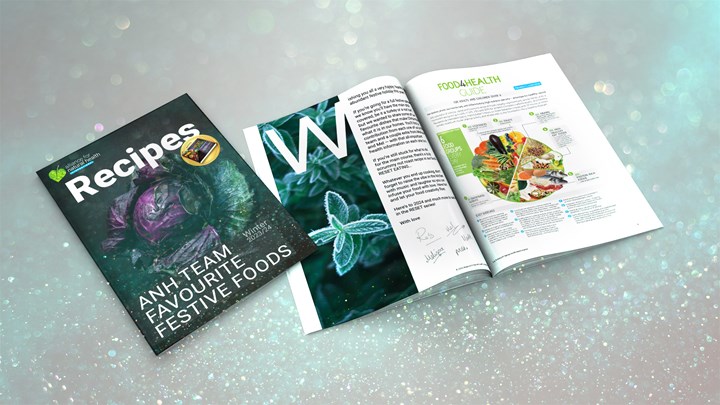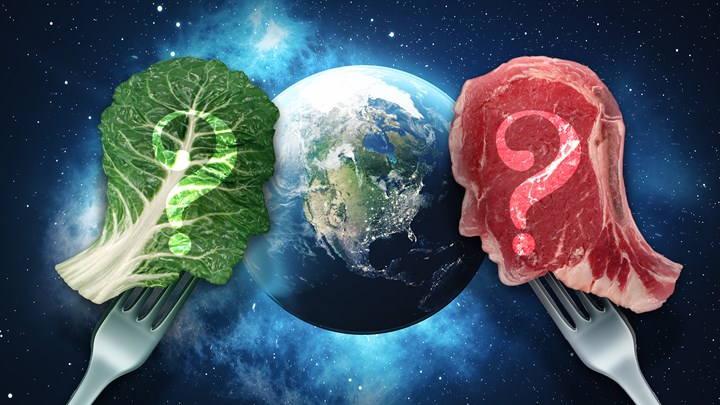Content Sections
Let’s face it, it’s hard not to over-indulge during the festive holidays, but did you know that the average calorie intake for those choosing to indulge in Christmas festivities on 25th December is usually around 7000-8000 calories! That constitutes binge eating for most of us, as it’s around three and a half times more than our recommended daily intake. No wonder it’s hard to do more than collapse on the sofa feeling bloated and nauseous and turn on the telly. Add to that, the pre-holiday parties that many have attended, the lead up to New Year and it’s not surprising that it’s a struggle to fit into your party gear come January. It’s also no wonder that so many resort to making New Year resolutions that often include a detox. Did you know that the average weight gain for over the festive season is between 2-5kg (5-10 lbs)? For many, a significant amount of this weight refuses to budge. But does it have to be like this?
Santa’s superfoods to offset the holiday hoggishness
The healthy options:
- Turkey. It’s lean, low in calories, high in protein (22 g/100g) and loaded with iron, zinc, selenium and B vitamins. You take off another 40 calories if you can bear to remove the skin. It’s also a feel-good food because it’s a source of the essential amino acid tryptophan – the precursor to the happy hormone, serotonin.
- Brussels sprouts (love’em or hate’em) are full of cancer-protective glucosinolates, help to lower cholesterol and are chock-full of vitamins and minerals as well as being a good source of fibre. Did you know there are nearly 100 studies in PubMed focused on the humble Brussels sprout? Because, they’re key for supporting our detoxification and are both antioxidant and anti-inflammatory. We suggest you learn to love them! And please don’t overcook them!
- Dark-green and leafy vegetables (e.g. broccoli, kale, spring greens, green cabbage, spinach and green beans) are great natural sources of the B vitamin, folate, which is vital for supporting one of our most important liver detoxification pathways (methylation). This is something the synthetic form, folic acid, found in the vast majority (but not all) vitamin supplements, doesn't do. In short, we can’t detoxify all that festive excess without our methylation pathways working properly!
- Cranberries are a rich source of phytonutrients, particularly antioxidant flavonoids. They’re great to support immune health and keep your urinary tract healthy whilst it deals with all the festive treats, but also for a healthy heart and to protect against stomach ulcers. Watch out for the sugar in ready-made cranberry sauces or jellies: make your own using organic cranberries and then fresh orange or apple juice instead of sugar.
- Satsumas are a low-calorie sweet treat that’s full of vitamin C and fibre, so reach for the fruit bowl before the box of chocolates!
- Red wine; the resveratrol in it may help you offset some of the festive damage. Have too much of course and you compromise your liver given the alcohol! Resveratrol is a unique antioxidant that has a whole host of benefits, including anti-cancer and anti-inflammatory properties, and helping to protect the delicate fats that make up your cell membranes. Healthy cells mean better function. If you don't want your resveratrol with alcohol, and you want to benefit from a more beneficial dose — you can of course take it as a supplement. Typically a glass of red wine might give you between 300 mcg to 1 mg of resveratrol — whereas a good resveratrol supplement might give you 100 mg per capsule! Let the choice be yours!
Festive-fayre to watch out for:
- All sweet treats. Did you know that the average time that the chocolates appear on Christmas morning is 8.30 am?
- Mince pies because they’re loaded with sugar and are fast-burning carbs, which will send you into the sugar high, crash and burn yo-yo.
- Alcohol – have a care for your liver, which is working overtime anyway on the detox front. It’s also loaded with sugar and so adds to the sugar yo-yo. Creamy drinks like Irish cream whisky can be as much as 180 calories per glass.
- Roast potatoes. Whilst a roast dinner isn’t a roast dinner without them, remember to par-boil them first and don’t submerge them in oil/fat to reduce the amount of oil they soak up. You only need a glug of oil over them to make yummy, crispy and healthier roast potatoes.
- Sausages and bacon – fondly known in the UK as ‘pigs in blankets’, but a concentrated source of calories!
- Stuffing. Why not try some vegetarian options loaded with nuts and dried fruit instead of the more traditional sausage meat stuffings? Opt for gluten-free breadcrumbs and you avoid the wheat-bloat that affects so many people.
- Hidden sugar, preservatives, additives and colourings. Avoiding processed food and opting for making your own with fresh produce is always going to be the healthier option. Make it a family affair and get everyone involved in the food prep!
Some pointers for easing the bloat
- Aim to eat good quality, lean protein at each meal and combine with vegetables or fruit to help keep your pH balanced.
- Eat your ‘sweet treats’ with a meal that contains protein, always making sure you have the protein first. This helps to dampen down the insulin response and manage your blood sugar.
- Don’t pile up your plate because it all looks so good. It’s true – your eyes are bigger than your tummy!
- Heed your satiation response – when you feel full it’s time to stop. It’ll all still be there at the next meal.
- Make sure you don’t graze all day and give your digestion a rest by having at least a 4-5 hour break between meals.
- Get off the sofa and expend some energy outdoors. There’s nothing better than fresh air and activity to get your system moving, so remember to do some every day.
- Get your quota of fibre by eating enough vegetables and fruit. Apples are a great source of insoluble fibre and full of gut-soothing healthy enzymes – eat them raw or stewed.
- Asparagus, onions, leeks, garlic, beans and bananas are good prebiotic foods to keep your gut bacteria happy and healthy.
- Make sure you drink enough water to balance out the dehydrating effect of the alcohol. Black tea and coffee don’t count! They are also dehydrating, so aim for at least 2 L a day. If you want to snack between meals drink a glass of water instead!
Above all, remember how important love, laughter and fun are to enjoying the festive holidays. Spread some around and watch it come back to you 10-fold.
Have a happy and healthy holiday!








Comments
your voice counts
There are currently no comments on this post.
Your voice counts
We welcome your comments and are very interested in your point of view, but we ask that you keep them relevant to the article, that they be civil and without commercial links. All comments are moderated prior to being published. We reserve the right to edit or not publish comments that we consider abusive or offensive.
There is extra content here from a third party provider. You will be unable to see this content unless you agree to allow Content Cookies. Cookie Preferences